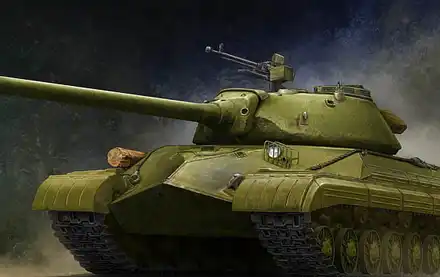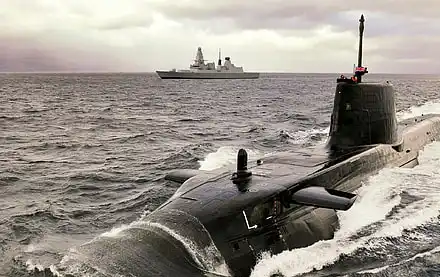February 7, 2025
<p><span lang="EN-GB">Bulgarian arms dealer Kalandor has been entrusted with a significant responsibility by the Nigerian Air Force: to procure advanced Turkish weapon systems and ammunition meticulously tailored for Nigeria's newly acquired T-129 attack helicopters. This strategic initiative is part of Nigeria's wider objective to bolster its military capabilities, considering persistent security challenges and threats to the nation’s stability.</span></p><p> </p><p><span lang="EN-GB">In October 2023, the Nigerian Ministry of Defence, under the authoritative leadership of Minister Mohammed Badaru Abubakar and Chief of Army Staff General Christopher Musa, embarked on an extensive and detailed search for reliable ammunition suppliers. This search was driven by an urgent need to modernise and equip Nigeria's armed forces effectively. As a result of this thorough evaluation process, the Nigerian Air Force awarded a substantial contract valued at $21 million to Kalandor for the procurement of vital munitions. The contract outlines the supply of 5,000 70mm rockets and 50 CIRIT laser-guided rockets, both crucial for enhancing the operational effectiveness and striking power of the T-129 helicopters in combat scenarios.</span></p><p> </p><p><span lang="EN-GB">A comprehensive report by Africa Intelligence confirmed that the contract was officially awarded by Air Vice Marshal Abubakar Sule, emphasising his role in this strategic procurement decision. Additionally, the report highlighted that Kalandor would also facilitate the delivery of a staggering 200,000 rounds of 20mm x 102 calibre ammunition, specifically designed for use in aircraft-mounted cannons, thereby significantly enhancing the air force's operational capabilities. The logistics involved in this transaction showcase a notable collaboration with two highly regarded Turkish defence firms: the reputable MKE is designated to supply the initial batch of rockets, while Roketsan, a company renowned for its cutting-edge missile technology, will manufacture the subsequent batch.</span></p><p> </p><p><span lang="EN-GB">Kalandor is not unfamiliar with the dynamics of Nigerian defence procurement; the arms dealer has a history of supplying the Nigerian Army with a variety of light weaponry. Currently, Kalandor is actively working to strengthen its business ties with the Defence Industries Corporation of Nigeria, aiming to foster cooperation that could potentially stimulate local defence production capabilities.</span></p><p> </p><p><span lang="EN-GB">The ongoing defence collaboration between Nigeria and Bulgaria is anchored in a comprehensive Memorandum of Understanding (MoU) signed in August 2021. This agreement formalised between former Minister of Defence Maj Gen Bashir Salihi Magashi and Bulgarian Ambassador to Nigeria, Yanko V. Yordanov, serves as a foundational framework for deepening bilateral cooperation in the realms of defence and security, showcasing the mutual benefits anticipated from such a partnership.</span></p><p> </p><p><span lang="EN-GB">The formal establishment of the defence partnership between Nigeria and Turkey was significantly reinforced during a landmark visit by Turkish President Recep Tayyip Erdoğan in October 2021. This visit not only highlighted the strategic importance of military collaboration but also underscored a shared commitment between the two nations to advance cooperation in defence technology and operational effectiveness.</span></p><p> </p><p><span lang="EN-GB">To ensure optimal operational readiness for the T-129 ATAK helicopters, personnel from the Nigerian Air Force embarked on an intensive training program in Turkey beginning in May 2023. This comprehensive training regimen emphasises both the operation and maintenance of these sophisticated helicopters. The program is designed to equip Nigerian forces with the essential skills required for effective utilisation and efficiency. The training initiative is expected to span several months and will draw upon the advanced methodologies and expertise available in Turkey.</span></p><p> </p><p><span lang="EN-GB">In a noteworthy development in November 2023, Nigeria celebrated the arrival of the first batch of two TAI T-129 ATAK helicopters from Turkey. A cargo plane from the Turkish Air Force, heavily laden with helicopters, touched down at the NAF Headquarters Tactical Air Command in Makurdi, Benue State, on November 1, 2023, following its departure from the TAI production facility near Ankara. This delivery represents a significant enhancement in the operational capacity of the Nigerian military, providing it with advanced aerial support capabilities.</span></p><p> </p><p><span lang="EN-GB">Following this initial delivery, in October 2023, the Nigerian Air Force welcomed a second batch of two TAI T-129 ATAK helicopters, further augmenting its capabilities to confront insurgency and terrorism effectively. These helicopters are specifically engineered to deliver superior aerial support, reconnaissance, and precision strike capabilities, vital for operations in Nigeria's complex and often hostile security landscape.</span></p><p> </p><p><span lang="EN-GB">The operational practice of employing third-party arms dealers in military procurement has come under increasing scrutiny on a global scale, primarily due to concerns regarding corruption, bribery, and other associated risks. Such opaque procurement practices frequently lead to inflated costs, inferior quality, and inadequate accountability, ultimately threatening the efficacy and integrity of military operations.</span></p><p> </p><p><span lang="EN-GB">Recognising these challenges, the Nigerian military has made a decisive shift away from third-party arms dealers, opting instead for a government-to-government procurement strategy. This transition initiated several years ago, emphasises transparency and is designed to enforce rigorous oversight and regulation over military procurement processes.</span></p><p> </p><p><span lang="EN-GB">Additionally, this strategic shift has fostered stronger bilateral relations with other nations, as such agreements commonly entail strategic partnerships, training opportunities, and mutual support arrangements. In conclusion, this collaborative approach not only reinforces Nigeria’s defence capabilities but also contributes to a more stable and secure military environment. As Nigeria continues its journey toward the modernisation of its armed forces, prioritising transparent and accountable procurement processes will be paramount in achieving long-term national security objectives.</span></p>
Author
Web Designer and journalist. I write stories for Global Aviator and Ultimate Defence. I also maintain the 3 websites: Ultimate Defence, GAConnect, and Global Aviator. I am also an aspiring author. I am writing a dark fantasy novel.





